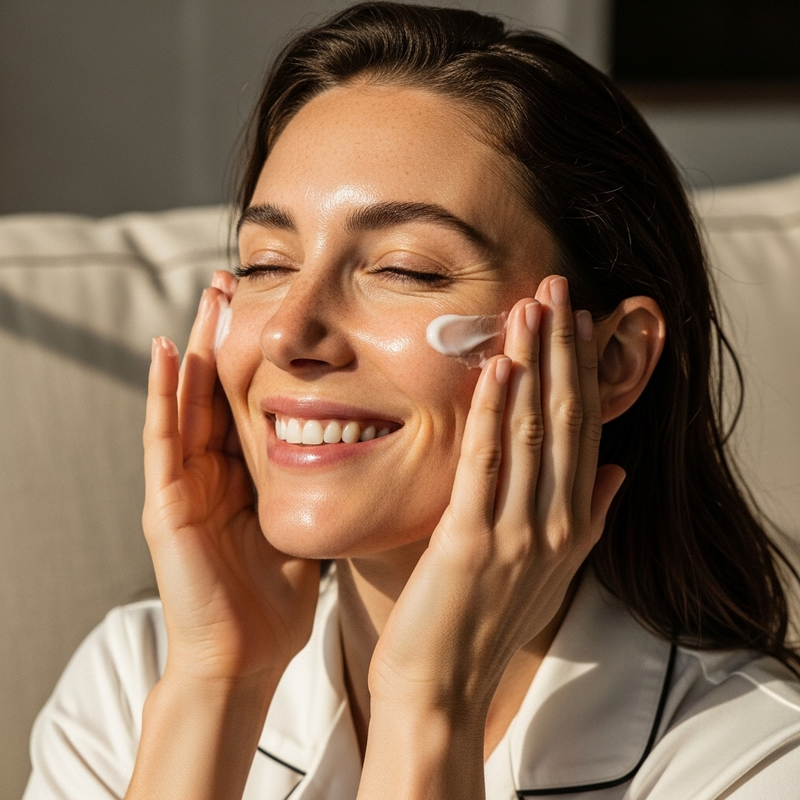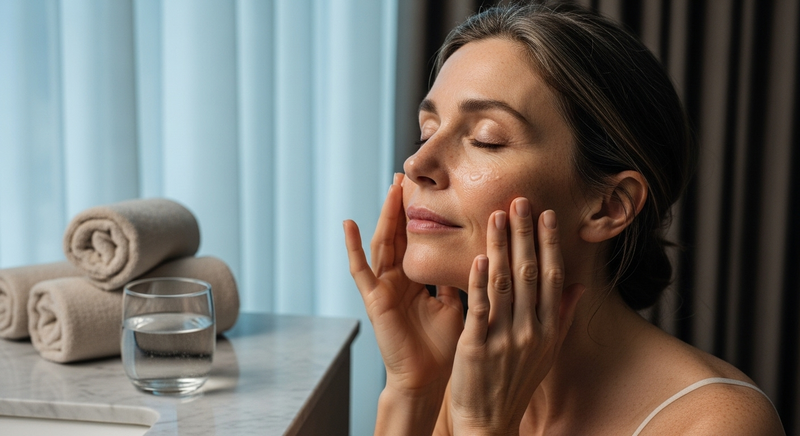Most of us at some point in our lives have experienced stress in one way or another. Stress is a feeling you have when you face a situation you think you cannot manage. Sometimes people feel anxious, irritable, forgetful, sleepless and unable to cope. This can be related to work, personal or social environments and feeling this way can trigger or heighten skin problems.

This month at GLO, we want to talk about stress and the skin and unearth some of the reasons why your skin reacts or changes to stress. And also, talk about ways to stress proof your life and ensure you maintain healthy skin.
How is stress connected to the skin?
Stress is a trigger that causes skin conditions such an as increase in acne breakouts, sensitivity, redness, wrinkles, dark circles and in extreme situations can lead to a flare up of dermatitis and hyper-pigmentation.

What can stress do to the skin?
Stress can lead to breakouts on the neck and sides of the face, thickening of eyebrow hair and fine facial stress lines may appear. Long term stress is also responsible for premature ageing and can lead to or flare up more serious chronic conditions like psoriasis, eczema and hyper-pigmentation.

So, what is the good news?
Dermalogica can help you to effectively treat the signs of stress in your skin. From acne, to redness, dark circles, wrinkles and more. Here at GLO, the Dermalogica experts, we can help you understand why and how stress specifically affects your skin and identify the right Dermalogica products to address these concerns. Also, we want to identify other ways that you can stress proof your life and your skin!
Specific Skin Concerns

How does stress cause acne?
When your body is stressed, the production of stress hormones, adrenaline and other steroids is increased. Acne forms when oily secretions from glands beneath the skin congest the pores. The increase in certain hormones signals oil glands in the body to produce more oil, more oil leads to more congestion which in turn leads to an increase in acne lesions and breakouts.
To effectively treat stress-induced acne, the aim is to impact the hormoe called 5-alpha reductase. Moderating its activity will in turn slow down the sebum production. This ingredient can be found in our Dermalogica Medicated Clearing products formulated for acne breakouts. A key step in controlling breakouts is to keep the skin clean. Cleanse twice in the morning and twice in the evening. First with Dermalogica PreCleanse, as cleansing oils are terrific at deeply cleansing the skin and secondly with either a Dermalogica facial gel or, ideally if you are oily, a Dermalogica Clay based Cleanser. A great daily treatment is an active spot recovery treatment which helps with the reduction of breakouts as well as post-breakout marks, keeping your skin looking brand new.
How does stress cause redness?
Neurotransmitters are chemicals that pass messages between nerve endings. When the body is under stress these chemicals naturally increase in the body as the nervous system is directly affected. When skin is over stimulated through prolonged stress, inflammation will increase resulting in sensitivity and redness.

To treat this, try to follow the 'less is more' rule, less time spent on your skin, less products on your skin, less friction. This also means no rubbing, no scrubs, less heat, avoid sun exposure and saunas. Choose products formulated with anti-inflammatory ingredients and designed for a sensitised skin condition. You can find gentle, tissue-off cleansers, soothing sprays, calming and redness reducing boosters, masques, and very gentle moisturisers. Avoid products with fragrance and S.D alcohol in them. All of these can be found in the Dermalogica UltraCalming range.
Can stress lead to wrinkles?
Long term stress can easily be seen on some people's faces, the emotional trauma resulting in wrinkles. Treating wrinkles is a complex business. No longer is it merely applying a night cream with added collagen. In recent years, scientists have come to understand the actual biochemical triggers that instigate premature ageing from conditions such as stress.

To target the signs of stressed out, prematurely ageing skin, a simple AM and PM routine with products that contain the latest complexes to protect the skin and ward off premature ageing is recommended. This includes Dermalogica Skin Resurfacing cleanser to cleanse the skin, followed by applying Dermalogica MultiVitamin Thermafoliant and then apply Antioxidant HydraMist and Dynamic Skin Recovery SPF30. For more information about any of the products discussed in this blog, talk to our skin therapists today.
For personalised skincare advice please contact us directly via our Online Skin Consultation, book online at one of our skin treatment centres in NSW or call us directly on 1300 828 131.
We are committed to helping you achieve the best skin possible. Please share your thoughts and questions below about your experience with stress and the skin. And stay tuned for the next blog on stress proofing your life and your skin!
Regards Sarah





